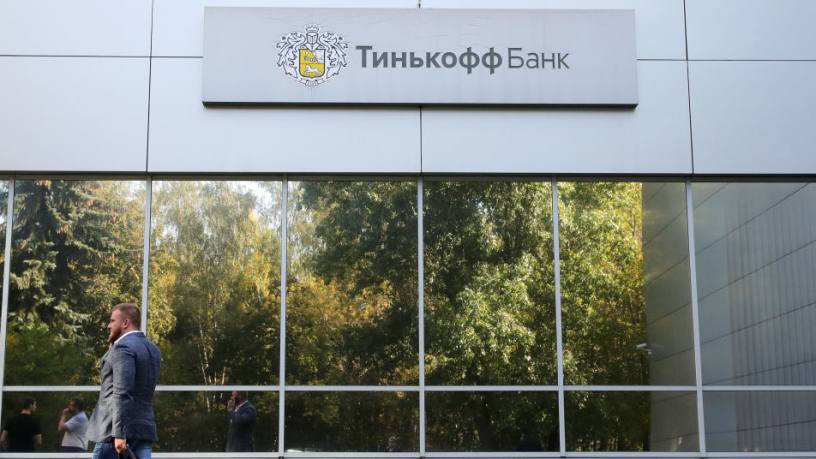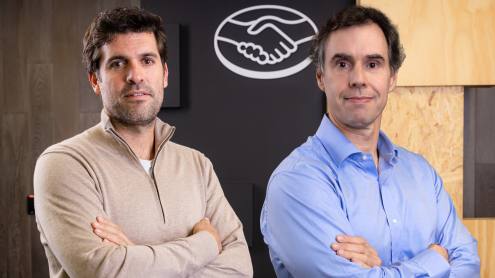Tinkoff Bank positions itself as an online financial ecosystem, providing a single platform for customers to access a comprehensive set of financial and lifestyle products and services that bring more value together than if used separately.
“A customer can enter the ecosystem through any product and easily find the next product they may need, or we can put the right product in front of the right person at the right time,” says Neri Tollardo, director of strategy at Russia’s Tinkoff Group.
Career history: Neri Tollardo
- 2021 Tinkoff Group, director of strategy
- 2019 Tinkoff Group, head of international investor relations and partnerships
- 2018 Morgan Stanley, vice-president, head of central and eastern Europe, the Middle East and Africa (CEEMEA) banks equity research
- 2016 Morgan Stanley, associate, CEEMEA banks equity research
The aim is a much better customer experience. “Plus, by owning the customer relationship, we can ensure greater loyalty over time and longer lifetime value.”
Tinkoff, a digital bank launched in 2006, evolved its online platform to embrace mobile, as the latter became the main interface and acquisition channel. In 2012 it developed a mobile app, which began as a transactional app with digital wallet and payment capabilities, but soon had all banking functionality and products.
“However, we realised that to encourage customers to use the app more frequently we would have to take it to the next level,” says Mr Tollardo. “By providing broader services beyond finance, we could encourage customers to spend more time with us and increase their loyalty. We could also gather more data and, therefore, have better targeting ability.”
In late 2019, the bank turned the platform into a “super app”, where a customer can access the bank’s proprietary financial offerings, as well as lifestyle services from Tinkoff and its partners. More than 30 partners provide services that support a customer’s life, such as ticketing, travel and even booking a doctor’s appointment. Tinkoff also added content, such as financial education and personal finance management. Today, the super app has more than nine million active monthly users, reports Mr Tollardo.
While Tinkoff is open-minded about who it works with, its partners must adhere to the bank’s high standards. The bank also embeds some of its products in other platforms, such as selling insurance products through other brokers in Russia. “For the most part, however, we are trying to maintain the customer relationship and control that as much as possible by attracting customers onto our platform,” he says.
Tech to the fore
Tinkoff sees itself as a technology company with a banking licence, according to Mr Tollardo. Some 3,000 of the 4,000 employees in its headquarters are IT specialists, such as data scientists and software engineers. “Almost every product and service is developed in-house,” he says. “This has become our competitive advantage because we control the entire value chain.”
And the situation under Covid-19 has proved that Tinkoff’s strategy is the correct one, says Mr Tollardo, as it could respond quickly with new services for both retail and small and medium-sized enterprise (SME) customers. “We helped our SME customers move online through our website builder and helped them receive payments online through Tinkoff Checkout, which provides them with access to all our payment platforms and products, be it online, offline cards or faster payments,” he says.
Artificial intelligence (AI) is an important part of Tinkoff’s tech arsenal. While it began deploying AI in the back end to drive efficiency and cut costs, the benefits AI could bring in the front end were quickly identified. “The ultimate goal is to help our customers save money and time, as well as provide them with a better experience,” he says.
For a bank to have a successful AI strategy, it needs to be used by people that are not necessarily software engineers
“We developed our AI banking vision, which uses AI to automate repetitive payments and other boring activities, and turned the app into something that the customer wants to use because they will receive advice and recommendations.” The app is personalised, so that each person sees a slightly different version; for example, an avid traveller will see travel-related products more prominently on the app.
It also has a voice assistant that helps customers with queries. Customers can choose the assistant’s name, voice, gender, and send instructions on handling calls from their contact lists.
AI culture
Tinkoff’s AI centre acts as a repository of knowledge and as the “culture carrier” within the organisation. “As well as research and development, its aim is to spread the culture of including AI in everything we do,” says Mr Tollardo. “For a bank to have a successful AI strategy, it needs to be used by people that are not necessarily software engineers.”
In 2019, Tinkoff built a powerful supercomputer, Kolmogorov, and is using it to create cybersecurity solutions, anti-fraud services and voice recognition software, some of which it sells externally. For example, its voice assistant was developed in-house with its voice recognition software, and is white labelled.
Fraud is another area of importance. “We developed an anti-fraud application to spot and minimise false positives using our supercomputer,” says Mr Tollardo. In 2020, the group launched Tinkoff Call Defender, in collaboration with Russian mobile networks, to warn customers about suspicious calls, which may be social engineering or phishing. “We provide this service to all our customers at the click of a button,” he adds.














